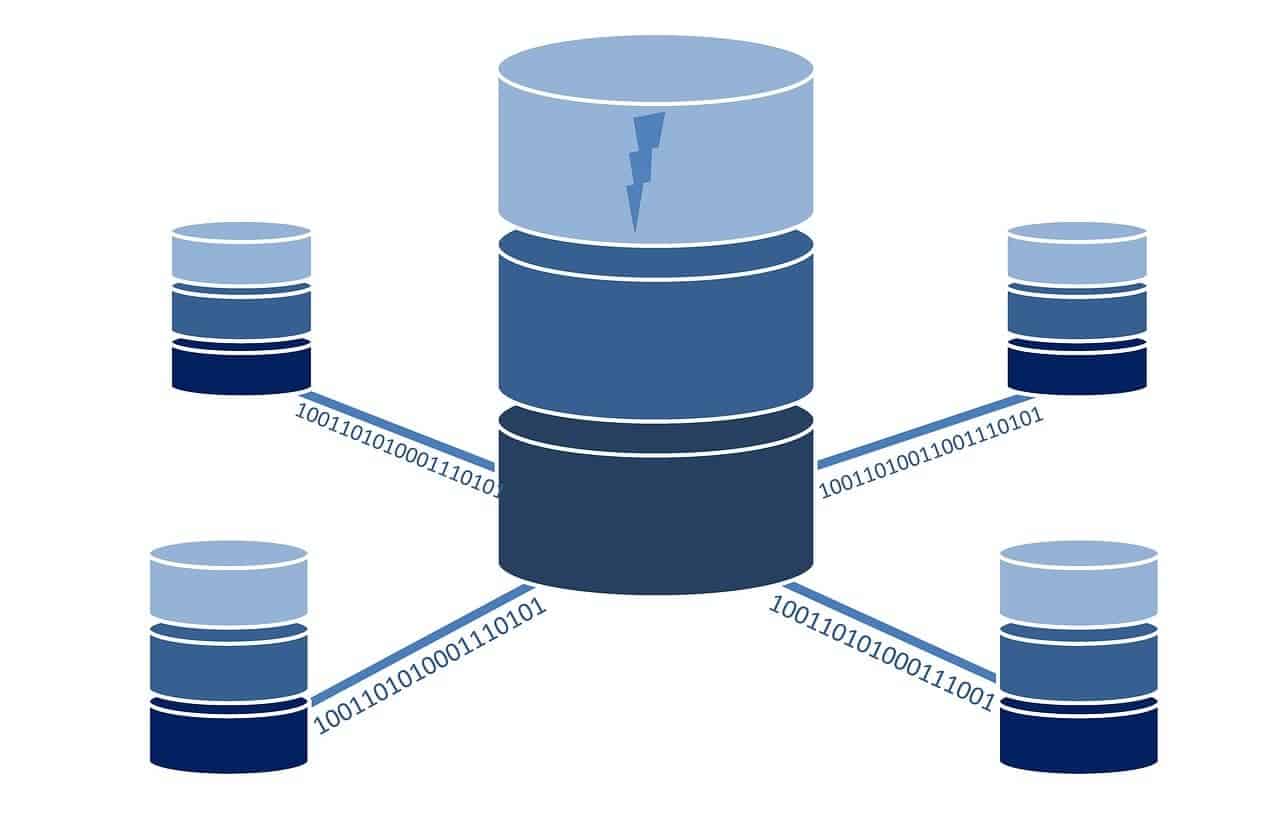Data warehousing database administrators (DBAs) play a central role in ensuring the success of business intelligence initiatives. By leveraging their experience and expertise, DBAs can effectively manage data warehouses to ensure they are reliable and secure while providing timely access to critical information for decision-making processes. This article will explain why successful business intelligence depends on competent data warehousing DBAs and how such professionals can help organizations thrive in today’s competitive environment.
The digital age has enabled businesses to capture massive amounts of customer information, which must be stored securely within an organization’s data warehouse. A well-designed and managed data warehouse gives companies insights into their customers’ preferences, helping them make more informed decisions regarding strategic planning, marketing strategies, product development, etc. This data must remain up-to-date and accurate to provide meaningful results. The performance of the data warehouse largely depends upon the quality of its design and its maintenance by qualified personnel.
Enter the Data Warehousing DBA; these specialists possess the knowledge to create efficient architectures capable of quickly and accurately managing large datasets. They have specialized skill sets related to database optimization techniques such as indexing or query tuning – all aimed at improving system performance without compromising security standards. Furthermore, experienced DBAs understand how different systems interact with each other, enabling them to evaluate better potential risks associated with introducing new technologies into existing infrastructures. With their ability to rapidly identify problems, analyze solutions, and execute changes accordingly, highly skilled DBAs enable organizations to stay ahead of the competition by effectively utilizing available resources.
Data Warehousing Definition:
Data warehousing is storing, managing, and integrating data from multiple sources for use in business intelligence. It involves using a combination of technologies to store large amounts of structured or unstructured data that can be used to analyze trends and make decisions. A Data Warehousing Database Administrator (DBA) plays an essential role in this process by providing technical expertise and operational support.
The responsibilities of a DBA include designing, implementing, maintaining, and monitoring databases; administering security measures; performing database backups; ensuring data integrity; troubleshooting system issues; optimizing performance; creating reports; and developing new systems. They must also know software development tools, programming languages, web-based applications, and frameworks like Java, HTML5, CSS3, and JavaScript. In addition, they need to understand how various types of data are integrated into one cohesive whole for analysis purposes. DBAs play a crucial role in successful business intelligence initiatives by mastering these skills.
Responsibilities Of A Data Warehousing DBA:
As a Data Warehousing Database Administrator (DBA), several core responsibilities must be upheld to ensure successful Business Intelligence. These include:
- 1. Designing and implementing an effective database architecture
- 2. Performing performance optimization of the data warehouse
- 3. Configuring, monitoring, and troubleshooting performance issues related to the data warehouse
- 4. Upgrading software components as needed
In addition to these technical duties, it is also important for DBAs to understand business requirements to develop solutions that meet those needs. It requires taking into account the scope of their development projects, as well as any risks associated with them. Furthermore, they should know industry standards relating to data warehousing and Business Intelligence practices to make informed decisions when changing or upgrading existing systems. Applying this understanding within strict timelines while adhering to quality guidelines will help ensure the successful delivery of projects on time and within budget parameters. By leveraging these skillsets appropriately, DBAs can create robust data warehouses that provide meaningful insights into current operations and anticipate future trends, aiding decision-making processes at all levels of the organization. As such, they play a pivotal role in achieving organizational objectives through improved analytics capabilities.
Understanding Business Requirements:
The role of a Data Warehousing DBA is essential to successful business intelligence. A key responsibility for the dba is understanding and evaluating the business requirements that will drive data collection, strategy planning, and decision-making. To ensure success in this area, the dba must consider the various stakeholders involved in any project or initiative. It is crucial to recognize their needs and preferences regarding the options for meeting those objectives.
At its core, understanding business requirements requires strong communication skills between all parties involved. The dba should be well-versed in customer segmentation, market analysis, cost analysis, and operational efficiency to identify areas where additional information may be needed from external sources or internal databases. Additionally, they must know how to integrate new technologies with existing systems to maximize customer performance and value. By taking these steps, a Data Warehousing DBA can help an organization develop more effective solutions that meet current demands while preparing them for future growth opportunities.
Working With Big Data And Data Integration:
As a data warehousing DBA, it is essential to be able to work with big data and effectively integrate that data. Data integration tools are necessary for successful data analysis, as they allow the user to combine different sources of information quickly and easily. Being proficient in using these tools enables one to create timely and accurate databases, which can then be used to inform business decisions. It also allows businesses to gain valuable insights into their customer base by helping them identify trends or patterns over time. Having access to this kind of information makes it easier for companies to make decisions based on what their customers need and want for them to remain competitive in the marketplace.
Designing and implementing database solutions requires understanding how all the pieces fit together within a system architecture. Knowing how best to configure servers, storage systems, and networks to perform optimally is vital when dealing with large datasets. That involves making sure that all related components operate efficiently while at the same time ensuring that data quality remains high enough for meaningful results from any queries made against the databases. Additionally, security measures must be implemented to protect sensitive data from unauthorized access or malicious attacks, thus giving users greater peace of mind when sharing confidential information with third parties. With these steps taken care of, organizations will have reliable access to valuable insights derived from their stored data which can help drive growth and success.
Designing And Implementing Database Solutions:
Designing and implementing database solutions for data warehousing presents unique challenges. Database administrators (DBAs) must be able to create efficient, secure, reliable databases that meet the requirements of business intelligence applications. To achieve this goal, DBAs must understand how to design appropriate database structures and maintain them to support data integration needs.
The key components of designing and implementing database solutions include: – database design techniques such as normalization and de-normalization – leveraging existing tools like Oracle or SQL Server to implement optimized designs based on best practices – utilizing scripting languages like Python to automate processes associated with ongoing tasks related to database maintenance.
With the right combination of knowledge and skillful execution, DBAs can provide organizations with practical strategies for managing their data warehouse environment while facilitating strong business intelligence outcomes. That ensures better decision-making capabilities, leading to greater efficiency, productivity, customer satisfaction, and success. By addressing potential issues beforehand through careful planning and analysis, DBAs can help ensure that organizational goals are met with minimal disruption.
Tuning Queries And Optimizing Performance:
Tuning queries and optimizing performance are essential to a thriving data warehousing environment. As the dba for business intelligence, it is essential to identify areas where query tuning can be performed to maximize efficiency. It includes analyzing existing indexes, tweaking query plans, and understanding how big data affects performance optimization.
It is also critical to understand the implications of different types of usage on system resources, such as memory and CPU utilization. Applying knowledge about these areas helps ensure that changes made do not cause negative impacts on overall business operations while maximizing the benefits provided by having an optimized data warehousing environment. By taking proactive measures concerning query tuning and performance optimization, organizations can empower their users with increased agility when working with large datasets while keeping security top-of-mind. That sets up businesses for success as they prepare for future growth through improved capabilities within their data warehouse infrastructure.
Security Management:
Successful business intelligence depends on effective security management as a Data Warehousing Database Administrator (DBA). A robust data security foundation is critical to any database system’s success and longevity. Security protocols such as access control, encryption standards, and other vital measures must be implemented to ensure that only authorized users can access sensitive information.
Security protocols should also be tested for effectiveness and updated periodically to ensure optimal performance. It includes monitoring user activity logs for suspicious activity or unauthorized changes made within the system. Organizations can protect their systems from malicious attacks by implementing a comprehensive security plan with proper enforcement policies while maintaining appropriate privacy and confidentiality.
The importance of data security cannot be overstated; it serves as a safeguard against cyber threats and an essential component of business intelligence efforts. An effective security management strategy allows businesses to maintain reliable records, maximize compliance with industry regulations, minimize risk exposure, and improve decision-making capabilities across multiple departments. With secure systems, companies can rest assured that their valuable assets are safe from potential breaches or misuse.
Automating Tasks And Scheduling Jobs:
Having already discussed the importance of security management in data warehousing, it is time to focus on automating tasks and scheduling jobs. Automation is a crucial part of any successful business intelligence system. It helps companies become more efficient and productive by taking repetitive manual processes off workers’ hands so they can devote their energy to higher-value activities. Job automation also ensures that the same process is consistently followed every time, reducing errors and increasing reliability.
Task scheduling allows users to set up jobs at specific times or intervals. This type of job scheduling enables businesses to automate complex workflows without requiring constant user intervention. Scheduling ensures all tasks are completed on schedule and within budget, freeing up resources for other projects or initiatives. With task scheduling, organizations can proactively ensure deadlines are met rather than reactive when something goes wrong.
Automating tasks and scheduling jobs is essential for building analytics dashboards that provide real-time insights into how different areas of an organization are performing. This kind of visibility gives decision-makers the power to make informed decisions based on accurate information quickly and efficiently, leading to tremendous success for the enterprise.
Building Analytics Dashboards:
As the data warehousing dba, it is essential to understand dashboard building and analytics. Dashboard building involves designing a user-friendly interface allowing users to navigate their datasets easily. That includes creating visualizations such as charts and graphs that allow for a straightforward interpretation of the data. Analytics development requires deep knowledge of database structures and query languages to create meaningful insights from the data. The dba can use data visualization techniques like heat maps and scatter plots to communicate findings from large datasets effectively.
The key components necessary for successful dashboard building are :
- 1. Database structure design
- 2. Query language optimization
- 3. Visualization tool implementation
Combined, these three elements will provide an effective means of gathering business intelligence from complex datasets. With these approaches, dashboards are a powerful way to analyze trends and track organizational progress. In addition, they can help identify areas where improvements need to be made, or opportunities might exist for further growth and success. By leveraging analytics design, development, and data visualization tools offered by the dba, businesses can access vital information that would otherwise remain inaccessible or hidden in plain sight.
Benefits Of Having A Data Warehousing DBA:
Having a Data Warehousing Database Administrator (DBA) can provide numerous benefits to businesses seeking to optimize their data analysis and ensure the integrity of business intelligence growth. With an experienced DBA, organizations can utilize advanced techniques that help them make decisions quickly and accurately.
The main benefit of having a DBA is the assurance in data management practices. From sorting through massive amounts of information for patterns and trends to cleaning up incorrect or incomplete entries, DBAs have the expertise to manage large volumes of data accurately and efficiently. They can maximize performance by conducting ongoing maintenance tasks such as indexing, archiving, and partitioning while minimizing storage space requirements. Additionally, they can create backups that protect against data loss due to hardware or software malfunctions or malicious attacks.
With greater visibility into how processes should be conducted within an organization’s IT infrastructure, a DBA provides invaluable insights on leveraging existing resources for maximum efficiency. Furthermore, embracing new technologies such as cloud computing and automation tools enable businesses to implement cutting-edge solutions that increase operational agility while remaining cost-effective. All these factors allow companies to focus on their core competencies while giving them peace of mind knowing that their vital data is secure and properly managed.
Conclusion:
Data warehousing is a powerful tool for business intelligence, and a data warehousing DBA plays an essential role in its success. A data warehousing DBA must know the latest technologies to understand and meet the organization’s needs. It requires analyzing business requirements, designing database solutions, automating tasks and scheduling jobs, integrating significant data sources into one cohesive solution, providing security management, and building analytics dashboards. By having a dedicated data warehousing DBA on staff, organizations can leverage their existing investments in technology and move quickly from insights to actionable results.
The benefits of having a data warehousing DBA are clear:
- Improved efficiency
- Accurate decision-making processes
- Increased customer satisfaction levels
- Reduced costs associated with onboarding new systems or fixing errors due to a lack of experience
Furthermore, they provide an expert perspective that enables organizations to make sound decisions based on real-time trends rather than guesswork. Ultimately, this translates into better insight into customer behavior, leading to more effective marketing strategies.
In short, having a professional data warehousing professional as part of the team provides many advantages when gathering meaningful information from complex datasets. Data Warehousing DBAs bridge different departments within the company by understanding how best to utilize available resources while looking at potential growth opportunities. With these skillsets combined in one person, companies can confidently rely upon them for valuable insights to stay competitive in today’s ever-changing market landscape.

















